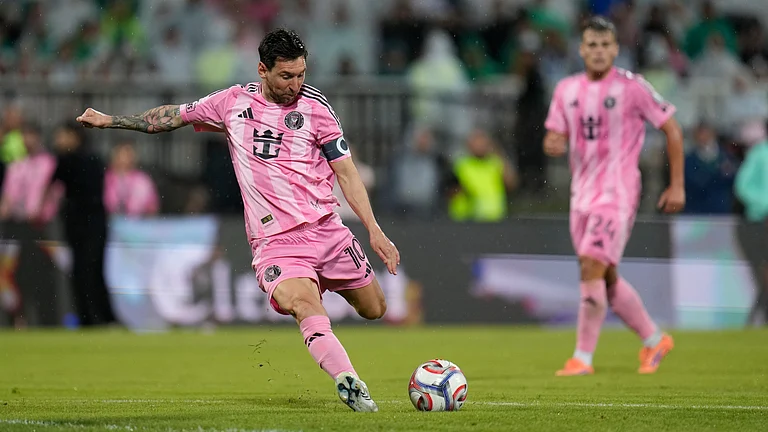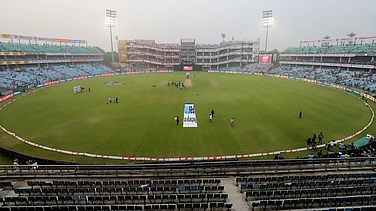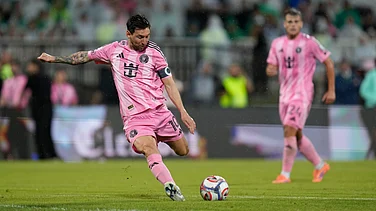Year-end exams don’t come much tougher than the one facing Erik ten Hag and Manchester United.
The Dutch manager was hired to return the storied club to its former glories after a decade of decline. Against Manchester City in the FA Cup final he will get the chance to show how far United has come in his first season in charge.
While a one-off match cannot judge an entire campaign, the contrast in emotions for United’s fans will be stark depending on the outcome.
A win on June 3 would not only secure a second trophy for Ten Hag — beside the League Cup — but also serve as a statement of intent that he is building a team ready to go head-to-head with City, perhaps as soon as next season.
Defeat wouldn’t necessarily alter that, but it would be painful confirmation of Guardiola’s ongoing dominance of English football.
The potential that City could also be in contention for a treble of trophies — the FA Cup, Premier League and Champions League — provides added spice to the occasion.
United remains the only English team to have won those three major trophies in one season, in 1999. The chance to block City’s attempt to emulate that feat will likely be an extra incentive.
“I understand, of course, the feelings from the Man United fans about it,” Ten Hag said Sunday.
United beat Brighton 7-6 on penalty kicks after the FA Cup semifinal at Wembley ended 0-0 through extra time.
On Saturday, City made light work of second-division Sheffield United in a 3-0 win, also at the national stadium.
This will be the first time the Manchester rivals have played each other in the FA Cup final, but there are parallels to be drawn from their semifinal in the same competition in 2011.
After three years under the ownership of Abu Dhabi’s ruling family, City had lavished money on superstar signings like Yaya Toure, David Silva and Carlos Tevez, but the club was still waiting for a first major trophy since 1976.
Former United manager Alex Ferguson dismissed the rival as “noisy neighbors” following the influx of money from its new owners.
But Toure provided a sign of the changing landscape of English football by scoring the only goal in a 1-0 win in the semifinals. City went on to lift the FA Cup, with Toure the match-winner again in the final against Stoke.
City has dominated ever since, winning 13 more trophies, including six Premier Leagues.
United, meanwhile, has suffered one setback after another after Ferguson retired in 2013 and went through four different permanent managers before hiring Ten Hag last year.
While the former Ajax coach has had his own difficulties in his first season at Old Trafford, he has sparked hope that the good times could be on their way back. United is on course to qualify for the Champions League and also is in contention for a second cup.
“We are on the right track. One trophy, another final and fighting for the top four,” goalkeeper David de Gea said. “It’s not enough but it’s a big step from last season.”
After losing to City 6-3 in Ten Hag’s first Manchester derby in October, United won 2-1 in January in what the manager described as the “perfect game.”
It is likely to take close to perfection to beat City in the final, with Guardiola’s team in relentless form as the season enters the final stages.
The win against Sheffield extended its unbeaten run to 16 games in all competitions.
“The momentum is key, it doesn’t matter if you play every three or four days if you are winning, winning,” Guardiola said.
While Guardiola has assembled possibly the strongest squad in club football — star striker Erling Haaland has 48 goals so far this season — Ten Hag is still in the process of building a team in his own image at United.
United could not compete with City to sign Haaland last summer, but the improvements over the season could boost Ten Hag’s chances of convincing an elite striker — the caliber of Harry Kane, for example — that he could win the biggest prizes at Old Trafford.
Win or lose, progress has undoubtedly been made under Ten Hag, even if City’s 11-point lead over United is evidence of the gap between the rivals.
Victory in the final, however, would be a symbolic statement that may suggest the power balance in Manchester and English football could be about to shift again.





















